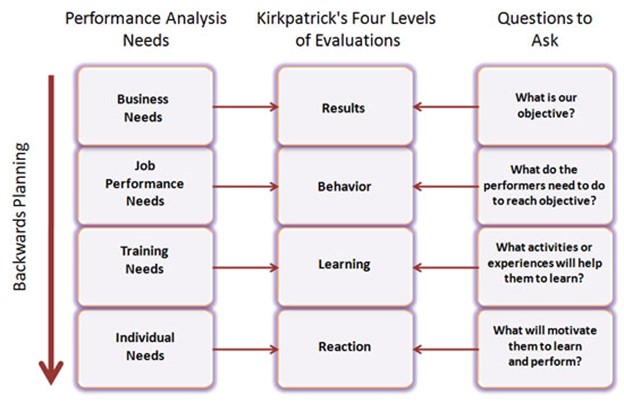Task Analysis in Instructional Design
A task analysis is a systemic collection of data about a specific job or group of jobs to determine what an employee should be taught and the resources he or she needs to achieve optimal performance (DeSimone, Werner, Harris, 2002).
In the Backwards Planning model shown below, the first step in the Analysis phase, Business Outcome, identified the Business Need, the second step, Performance Analysis identified the performance that is needed to obtain that objective, and the third step, Needs Assessment, identified the various Learning and Training Needs.

The Task Analysis performed in this phase further defines the Training or Learning Needs by supplying the required process and/or steps to perform a task. In addition, it should focus on how important the task is to both managers and performers, who will aid in the last backwards planning step - Individual Needs. Learners are mainly motivated by both what they see as important AND what their managers see as important.
While the previous steps in the Analysis Phase helped you determine the performance requirements and formal and informal learning needs, this step supplies the basic information for designing and building the learning platform, which is discussed in the Design and Development phases.